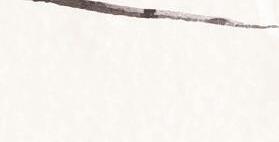

THE WEEKLY REST PROJECT
A CHALLENGETO JOURNAL, REFLECT, AND RESTORE












A gift for From










Date












WEEKLY REST PROJECT THE

A CHALLENGE TO JOURNAL,


REFLECT, AND RESTORE



ZONDERVAN
The Weekly Rest Project
Copyright © 2024 by Zondervan
Published in Grand Rapids, Michigan, by Zondervan . Zondervan is a registered trademark of The Zondervan Corporation, L .L .C ., a wholly owned subsidiary of HarperCollins Christian Publishing, Inc .
Requests for information should be addressed to customercare@harpercollins .com .
Zondervan titles may be purchased in bulk for educational, business, fundraising, or sales promotional use . For information, please email SpecialMarkets@Zondervan .com .
ISBN 978-0-310-46453-2 (hardcover)
Unless otherwise noted, Scripture quotations are taken from the ESV ® Bible (The Holy Bible, English Standard Version®) . Copyright © 2001 by Crossway, a publishing ministry of Good News Publishers . Used by permission . All rights reserved .
Scripture quotations marked MSG are taken from THE MESSAGE . Copyright © 1993, 2002, 2018 by Eugene H . Peterson . Used by permission of NavPress . All rights reserved . Represented by Tyndale House Publishers, Inc ., a Division of Tyndale House Ministries .
Scripture quotations marked NASB are taken from the New American Standard Bible® (NASB) .
Copyright © 1960, 1962, 1963, 1968, 1971, 1972, 1973, 1975, 1977, 1995 by The Lockman Foundation . Used by permission . www .Lockman .org
Scripture quotations marked NIRV are taken from the Holy Bible, New International Reader’s Version®, NIrV ® . Copyright © 1995, 1996, 1998, 2014 by Biblica, Inc .® Used by permission of Zondervan . All rights reserved worldwide . www .Zondervan .com . The “NIrV” and “New International Reader’s Version” are trademarks registered in the United States Patent and Trademark Office by Biblica, Inc .®
Scripture quotations marked NIV are taken from the Holy Bible, New International Version®, NIV ® . Copyright © 1973, 1978, 1984, 2011 by Biblica, Inc .® Used by permission of Zondervan . All rights reserved worldwide . www .Zondervan .com . The “NIV” and “New International Version” are trademarks registered in the United States Patent and Trademark Office by Biblica, Inc .®
Scripture quotations marked NKJV are taken from the New King James Version® . Copyright © 1982 by Thomas Nelson . Used by permission . All rights reserved .
Scripture quotations marked NLT are taken from the Holy Bible, New Living Translation . © 1996, 2004, 2015 by Tyndale House Foundation . Used by permission of Tyndale House Ministries, Carol Stream, Illinois 60188 . All rights reserved .
Scripture quotations marked RSV are taken from the Revised Standard Version of the Bible . Copyright © 1946, 1952, and 1971 National Council of the Churches of Christ in the United States of America . Used by permission . All rights reserved .
Scripture quotations marked THE VOICE are taken from The Voice™ . © 2012 by Ecclesia Bible Society . Used by permission . All rights reserved . Note: Italics in quotations from The Voice are used to “indicate words not directly tied to the dynamic translation of the original language” but that “bring out the nuance of the original, assist in completing ideas, and . . . provide readers with information that would have been obvious to the original audience” (The Voice, preface) .
Any internet addresses (websites, blogs, etc .) and telephone numbers in this book are offered as a resource . They are not intended in any way to be or imply an endorsement by Zondervan, nor does Zondervan vouch for the content of these sites and numbers for the life of this book
All rights reserved . No part of this publication may be reproduced, stored in a retrieval system, or transmitted in any form or by any means— electronic, mechanical, photocopy, recording, or any other— except for brief quotations in printed reviews, without the prior permission of the publisher
Art direction: Tiffany Forrester
Cover design: Noelle Glaze
Interior Illustrations: Creative Market / Patishop Art, Khrys Art, Lenis
Interior design: Kristy Edwards
Printed in India



WEEKLY REST PROJECT THE



Rhythms of Rest
To everything there is a season, a time for every purpose under heaven .
ECCLESIASTES 3:1 nkj V
The entire world runs on cycles . Day becomes night . Night becomes day . Winter melts into spring . Spring blooms into summer . Summer fades into autumn . And autumn freezes into winter . Years pass by, and people are born and eventually die, but these cycles that God created remain the same . He set each cycle moving at creation, including the ones that govern our days
The Bible models this cycle for us It is a rhythm of work, play, worship, and rest Days for work, nights for rest, Sabbath each week, and everyone pausing to come together to worship and celebrate for holidays and feasts Everything in balance to keep us healthy physically, mentally, and spiritually The seasons have always played a role too . Work was limited by daylight and the weather until very recently . There was less outdoor work to be done in the winter and more time to rest . Now, of course, thanks to technology, we can work anytime and anywhere, even when we shouldn’t .
Our modern, busy, go-go-go, I’ll-rest-when-I’m-dead mentality doesn’t truly disrupt or circumvent the cycle God provided us, even if it feels like working around the clock is some sort of cheat code to getting to the good life . It may lead to financial success, but it always comes at a cost— usually our health and overall well-being We’ve turned away from living in community and working together to carry the load in favor of doing it all on our own, in our own ways As a result, we’re

a society of people who are sick, unhappy, burned out, lonely, and overwhelmed . And that is definitely not God’s plan for us . Prioritizing rest is about more than catching up on sleep .
It’s about living our lives in sync with the rhythms God laid out for us that are designed to bring us closer to Him .









The Sabbath Was Made for Man
Then he said to them, “The Sabbath was made for man, not man for the Sabbath .”


MARK 2:27 niV
Keeping the Sabbath has always been an important part of Jewish culture, and as stated in the Ten Commandments, no work was to be done on the Sabbath in order to keep it holy . But in Jesus’ time, that had been taken to extremes . It was considered work to put food on the table, to gather water, to do almost anything at all . For many people the Sabbath was not restful; it was stressful .
Jesus was revolutionary in many ways, but at the time, one of the most controversial things He said was, “The Sabbath was made for man, not man for the Sabbath .” The Jewish leaders had turned the Sabbath, the day of rest, into a series of rules to be followed . Jesus recognized that for what it was: a perversion of God’s original gift of a day of rest . His simple statement said volumes . The Sabbath wasn’t some divine test where God was watching for every infraction . It was a generous gift, a sacred day to pause from the hard labor of the week and be refreshed .







What hobbies do you have that refresh you?

How can you incorporate those into your plans for the Sabbath over the next few weeks?










GKeep the Sabbath
“Remember the Sabbath day by keeping it holy .”
EXODUS 20:8 niV


od included the Sabbath, a holy day of rest, in His Ten Commandments (Exodus 20:8–10) because of how important it is . There isn’t any fluff in the Ten Commandments . There were no superfluous words or extra information, and yet the rule about keeping the Sabbath was the longest one . God wanted it to be very clear that everyone was to rest on the Sabbath, not just the wealthiest or most powerful people .
The Sabbath was the most sacred day of the week for God’s people in the ancient world . These days, it has become much more difficult to keep a true weekly Sabbath . Weekends get filled with kids’ activities, errands, chores, church, and all the tasks that didn’t get completed during the busy work week . Many of us also manage to squeeze in answering a few work emails too .


We still, as a society, largely keep the rest of the Ten Commandments, but keeping the Sabbath has fallen by the wayside . It’s no less important than it was in Moses’ day, and it’s time we treated it as such .




Why do you think keeping Sabbath is considered less important now?




How do you generally spend your days off? Do you set aside Sunday (or another day) as a Sabbath?












A Deeper Sabbath Restores More Fully
“When you enter the land which I am going to give you, the land will observe a Sabbath to God . Sow your fields, prune your vineyards, and take in your harvests for six years . But the seventh year the land will take a Sabbath of complete and total rest . ”
LEVITICUS 25:2–4 msg
This edict from God to let the promised land observe a one-year Sabbath to God was probably confusing to the Israelites . After all, a whole year off from planting crops and tending the land must have felt threatening to their food supply . But God knew something that the Israelites didn’t: even the land needs rest . Constant planting and growing uses up all the nutrients in the soil, until eventually crops won’t grow or growth will be stunted . A year off from growing allows the soil to be replenished . If time off for replenishment is necessary for something as basic as soil, we, with our incredibly complex bodies and minds, need the same Observing a Sabbath each week is crucial, but we need more rest than that Taking longer stretches of time off is important to help replenish ourselves Seasons where we work less and rest more can help immensely

If you could take a sabbatical, what would you do to rest and replenish yourself?

How can you incorporate some of those activities into your existing periods of rest, even if for just a weekend or holiday?


JIntentional Rest
“Come with me by yourselves to a quiet place and get some rest .” So they went away by themselves in a boat to a solitary place .
MARK 6:31–32 niV





esus had a lot of important work to do here on earth, arguably the most important work in history, but He often made time to rest, as we read about in the Gospels . Just as God set an example for us when He took a day to rest during creation, Jesus set an example for us about resting each day . After spending time with large groups of people, Jesus took time alone to regain His energy and often sought out solitary places . After traveling, Jesus needed time to sit, and water to quench His thirst . Jesus didn’t work around the clock . He slept at night and took naps during the day . He shared meals with His apostles . He prioritized time alone to pray . Jesus was limited by His human body here on earth, and He felt all the pangs and pains that come with that, just like we do . Instead of pushing past His own limits, Jesus very intentionally cared for His body, mind, and soul regularly, just as we should .










How do you intentionally rest and recharge your body throughout each day?



If you get overstimulated easily, how do you replenish your energy when you hit your limit?



